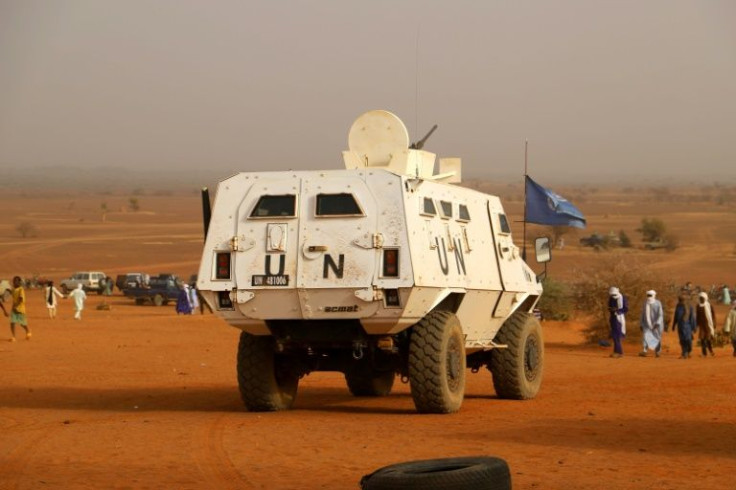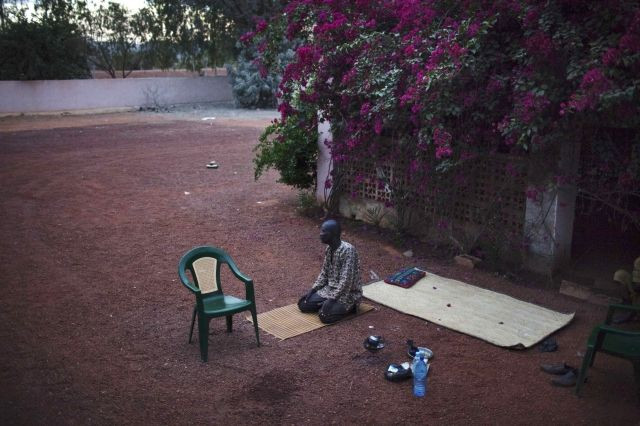Mali Expels Spokesman Of UN Peacekeeping Mission
Mali is expelling the spokesman of the UN's peacekeeping force in the country over posts he made on Twitter, the foreign ministry said on Wednesday.
MINUSMA spokesman Olivier Salgado has been given 72 hours to leave over "tendentious and unacceptable" posts he made concerning a controversy involving Ivorian troops, it said in a statement received by AFP.
The expulsion comes amid mounting friction between Mali's ruling military and international partners supporting the country's fight against jihadists.
The issue over Salgado, a French national, relates to 49 troops from Ivory Coast who were detained after landing at Bamako airport on July 10.
The authorities have accused the troops of being "mercenaries".
But Ivory Coast says they were sent to provide a support role for MINUSMA, under a routine rotation.
Countries that provide contingents to MINUSMA commonly bring in "national support elements", or NSEs, who help with supplies and other backup functions.
According to Mali's version of events, the troops had no mission orders or any authorisation to enter the country.

The foreign ministry accused Salgado of Twitter posts "declaring without any proof that the Malian authorities had been previously informed" of their arrival.
MINUSMA, it said, was asked to provide evidence to support Salgado's assertions but had given no reply.
The UN secretary general's deputy spokesman, Farhan Haq, said the UN "deeply" regretted the Malian decision.
"The doctrine of 'persona non grata' does not apply to United Nations personnel and is contrary to obligations under the Charter of the UN," he said.
"MINUSMA and UN Headquarters are taking appropriate measures to follow up with the relevant authorities on this matter."
The incident takes place against a backdrop of problems in Mali, one of Africa's poorest and most unstable countries.
Thousands of people have died and hundreds of thousands have been displaced in a jihadist campaign that began in northern Mali in 2012 and spread to Niger and Burkina Faso three years later.
Colonels angry at the government's handling of the insurgency seized power in August 2020 and carried out another coup in May 2021.

Their takeover triggered a long standoff with the regional bloc ECOWAS over a timetable for restoring civilian rule.
The coup also led to a spat with France, Mali's former colonial ruler, which says the junta has hired Russian "mercenaries" to support it.
France's anti-jihadist mission in the Sahel is now pulling out of Mali. The operation is expected to be completed in the coming weeks.
MINUSMA -- the United Nations Multidimensional Integrated Stabilisation Mission in Mali -- was launched in 2013.
It is one of the UN's biggest peacekeeping operations, with 17,609 troops, police, civilians and volunteers deployed as of April, according to its website.
It is also one of the most dangerous UN missions, with 275 fatalities from attacks, accidents or other causes, according to the website.
The UN Security Council renewed MINUSMA's mandate for one year on June 29, although the junta opposed requests to allow freedom of movement for rights investigators with the mission.
Four days after the row flared over the Ivorian troops, Mali announced it was suspending rotations of MINUSMA personnel for "national security" reasons.
The suspension will last until a meeting is held to "facilitate the coordination and regulation" of the rotation of contingents, it said. So far, no date has been set for any talks.
The following day, MINUSMA said that Egypt, its biggest troop contributor, had decided to "temporarily suspend" participation in operations after seven of its personnel were killed this year.
On Wednesday, a group called Yerewolo that is reputedly close to the junta handed over a letter at MINUSMA headquarters in Bamako demanding that the mission leave the country.
It described MINUSMA as having become "an occupation force which incites and maintains fear."
An analyst in Bamako, speaking on condition of anonymity, said the friction between MINUSMA and the Malian authorities was following "the same path" as that with France.
The pattern, he said, was "blocking foreign contingents, challenging the legal framework (for the mission) and then expelling a high-profile symbolic figure."
France's ambassador was expelled in January, at around the same time that Denmark was told to withdraw a newly-arrived unit that was part of a fledgling European force.
© Copyright AFP 2024. All rights reserved.







